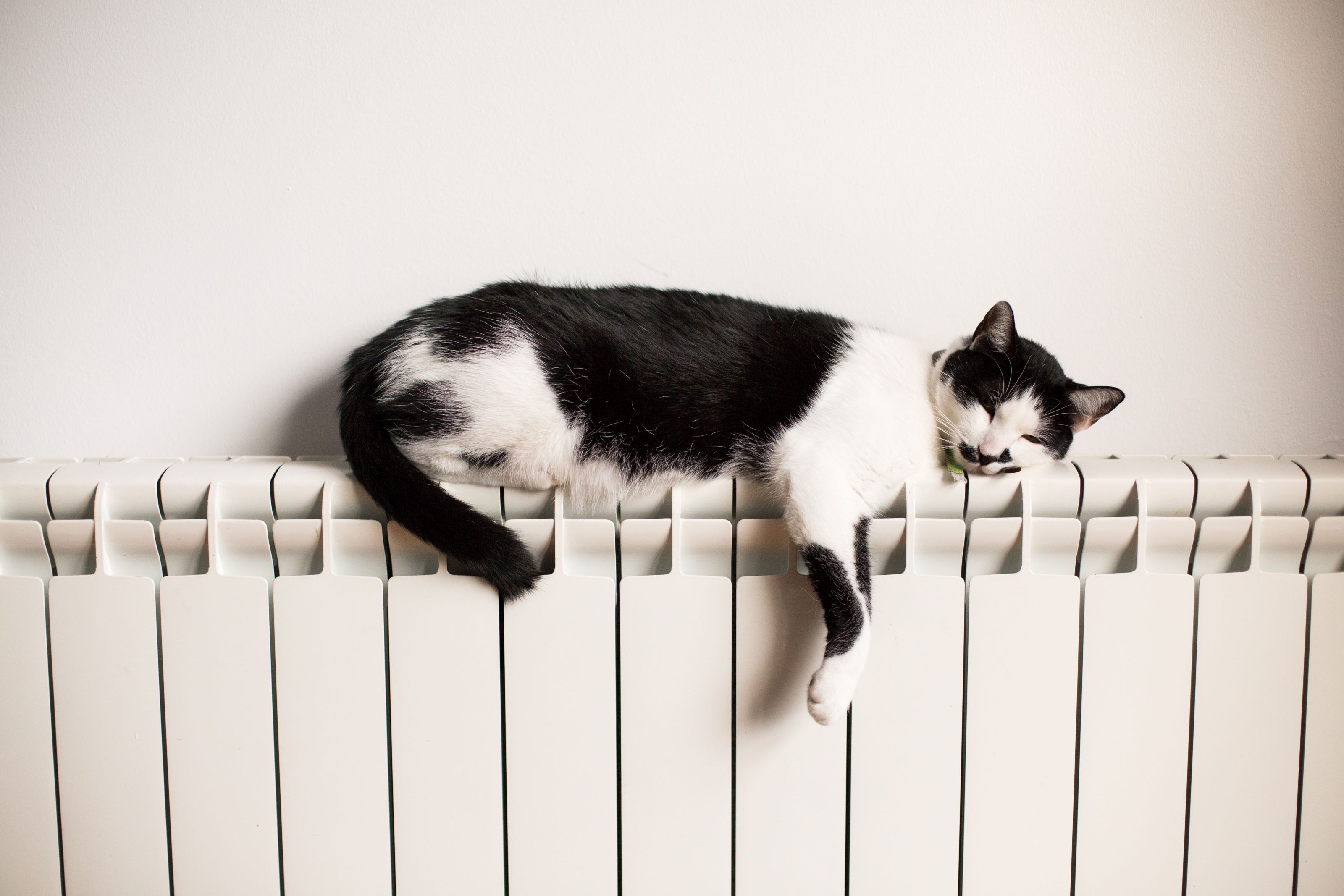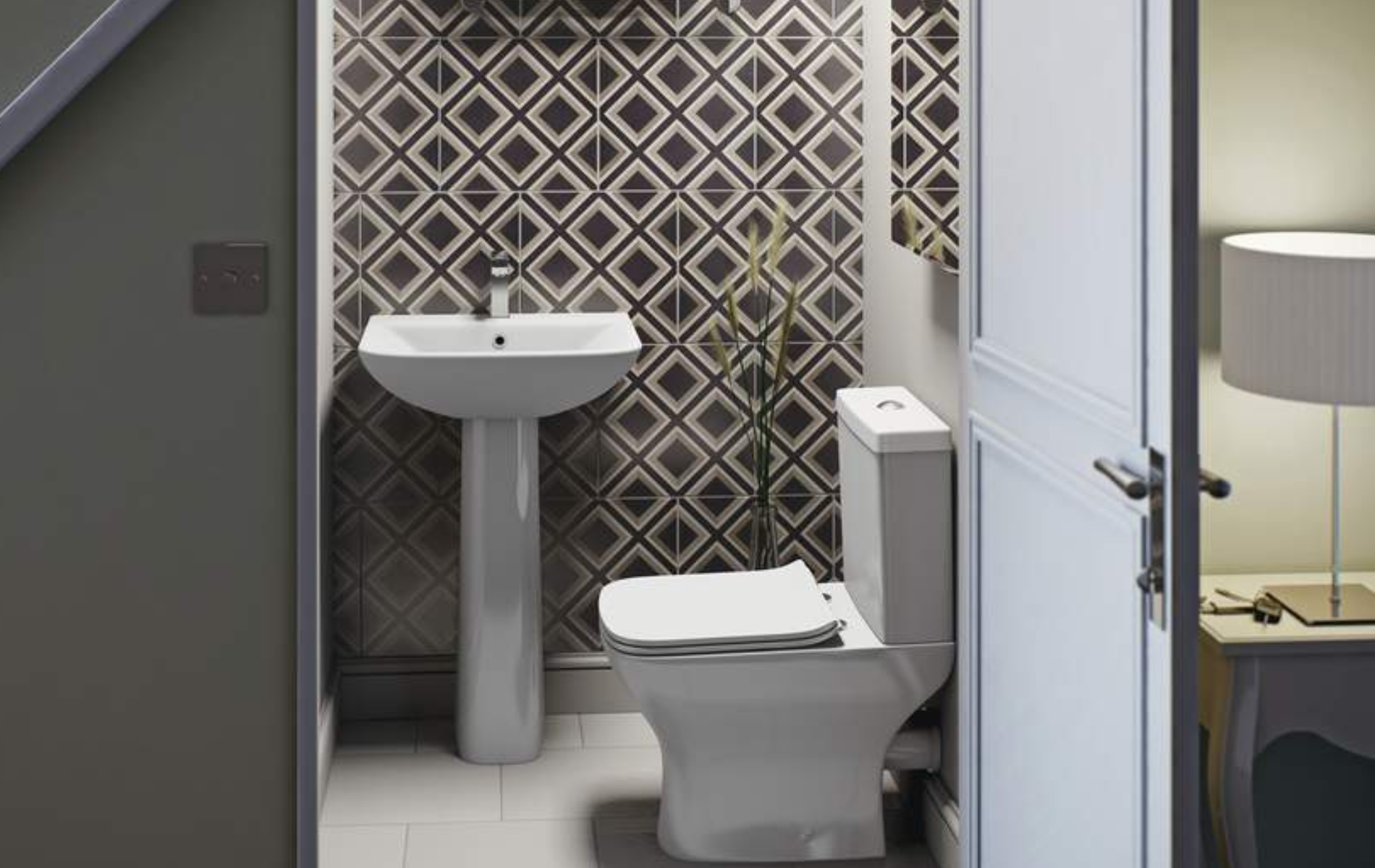
Bring your dream home to life with expert advice, how to guides and design inspiration. Sign up for our newsletter and get two free tickets to a Homebuilding & Renovating Show near you.
You are now subscribed
Your newsletter sign-up was successful
Householders in Britain will be fretting about their central heating costs per hour as uncertainty over energy prices continues.
A scheme to freeze a cap on all household energy bills for two years was scrapped by Jeremy Hunt in October, shortly after it was introduced. Instead the new Chancellor said the government would only impose a freeze of £2,500 on energy bills until April 2023. As such energy saving tips are more important than ever.
It is estimated that half of fuel bills are spent on heating and hot water in the average household, so using heating in the most efficient way is essential to keeping bills low. We look at how much central heating costs per hour to run as well as the factors to consider (i.e. household insulation) when working out how to run your system, whether that be longer at a low heat or in short, high bursts.
How much does central heating cost per hour to run?
While it is very difficult to be precise when it comes to central heating costs per hour due to so many variables, Martyn Bridges, director of technical services at Worcester Bosch, has given Homebuilding & Renovating a decent rough estimate for a typical home.
- 12p an hour (£2.82 a day) for a gas boiler
- 13p an hour (£3.10 a day) if running a heat pump
Central heating costs will vary depending on numerous factors such as the size and energy efficiency of your home, the climate where you live, whether you use a heat pump or boiler, when you need heating, how well insulated the property is, and how efficient your boiler is. The number of people who live with you and their needs is another important factor. For example, those working from home might need the heating on in the day during the colder months.
For this reason, when giving an estimate Worcester Bosch's Martyn Bridges has based his calculations on a typical Worcester Bosch boiler running 10 radiators in a three-bedroom detached house with two to three people living in it. He suggests in this scenario these 10 radiators will use a reasonable average of 10,000kWh a year.
"Presently gas is calculated at 10.3p kWh (kilowatts an hour) therefore 10,000 x 10.3 = £1,030," he explains. "Electricity is 34p kWh so 10,000 x 34 = £3,400."
Bring your dream home to life with expert advice, how to guides and design inspiration. Sign up for our newsletter and get two free tickets to a Homebuilding & Renovating Show near you.
That gives an average £2.82 per day (divided by 365 days) and 12p an hour (divided by 24 hours) for a gas boiler. This hourly cost is of course an average cost over 24 hours, so in reality the figure would differ depending on how many hours a day you run your boiler.
Martyn Bridges also estimates how much central heating costs per hour if run with a heat pump. He says generally a heat pump generates more energy than you put into it, typically three times the amount of heat out for one unit input. Therefore, a heat pump working at this level of efficiency or Seasonal Coefficient of Performance would work out as 10,000 x 34 ~ 3 = £1,130. That gives a daily cost of £3.10 and an hourly cost of 13p if running central heating with a heat pump.
Does insulation make central heating cheaper to run?
Put bluntly, insulation makes a huge difference to how much your central heating costs to run. An uninsulated home loses approximately 25% of its heat through the roof, 33% through the walls, 15% through the floors, 15% through draughts, and 20% through the windows.
The difference in bills between otherwise identical insulated and uninsulated home can be hundreds of pounds as a boiler needs to work for longer to simply replace the heat that is being lost.
Is it cheaper to run central heating for longer at a low temperature or in short bursts at a high temperature?
Again, this depends on a few different factors, such as whether you have a traditional boiler, a heat pump – which extract heat from the air or ground to heat your home and potentially water – or storage heaters, which accumulate heat in water or bricks during the night (when electricity is cheaper) and release it when needed.
Not-for-profit energy group Ebico says a house will heat up from cold more quickly the hotter the radiators are and, on the face of it, operating a boiler at maximum therefore means the home is warm quicker.
However, the efficiency of a central heating system depends greatly on the correct balance of boiler power output to the size and number of radiators. So, the key to keeping your home warm with the central heating system at minimum cost, is having the correct boiler installed in the first place, and then using the optimal output setting.
Experts at the Energy Saving Trust say that the idea that it's cheaper to leave the heating on low all day is largely a myth. And MoneySavingExpert states that having the heating on only when you need it is, in the long run, the best way to save energy, and therefore money. It suggests using a timer can be more cost-effective than a thermostat so the heating doesn't come on when you aren't home.
"The key thing to understand here is that it's all about the total amount of energy required to heat your home," it states.
Meanwhile, heat pumps are optimal when combined with radiators with a larger surface area or underfloor heating, as more heat can be delivered into the room without increasing the water temperature. By running the heating system for longer, you can deliver more heat into the room with lower temperature water.
Sometimes it can also be beneficial to only heat a single room that you are using with, for example, an oil-filled radiator. For more information on costs for this, check out our guide on how much an oil-filled radiator costs to run.
Does emitter type make a difference to heating costs?
Radiators, regardless of the type of radiator, work by heating the air around them through convection. Underfloor heating (UFH) meanwhile uses both convection and radiant heat to warm a room.
Generally, underfloor heating (UFH) is the most efficient option, if your home is well-insulated, especially when paired with a heat pump.
This is due to underfloor heating having a lower operating temperature (around 40°C) than a radiator system, which normally operates at around 65°C.
They can be around 25% more efficient than radiators depending on the design of the property and other factors.
Also bear in mind you can use both radiators and UFH in the same property. It's worth checking out our guide on choosing emitters for more information.
Sam is based in Coventry and has been a news reporter for nearly 20 years. His work has featured in the Mirror, The Sun, MailOnline, the Independent, and news outlets throughout the world. As a copywriter, he has written for clients as diverse as Saint-Gobain, Michelin, Halfords Autocentre, Great British Heating, and Irwin Industrial Tools. During the pandemic, he converted a van into a mini-camper and is currently planning to convert his shed into an office and Star Wars shrine.

